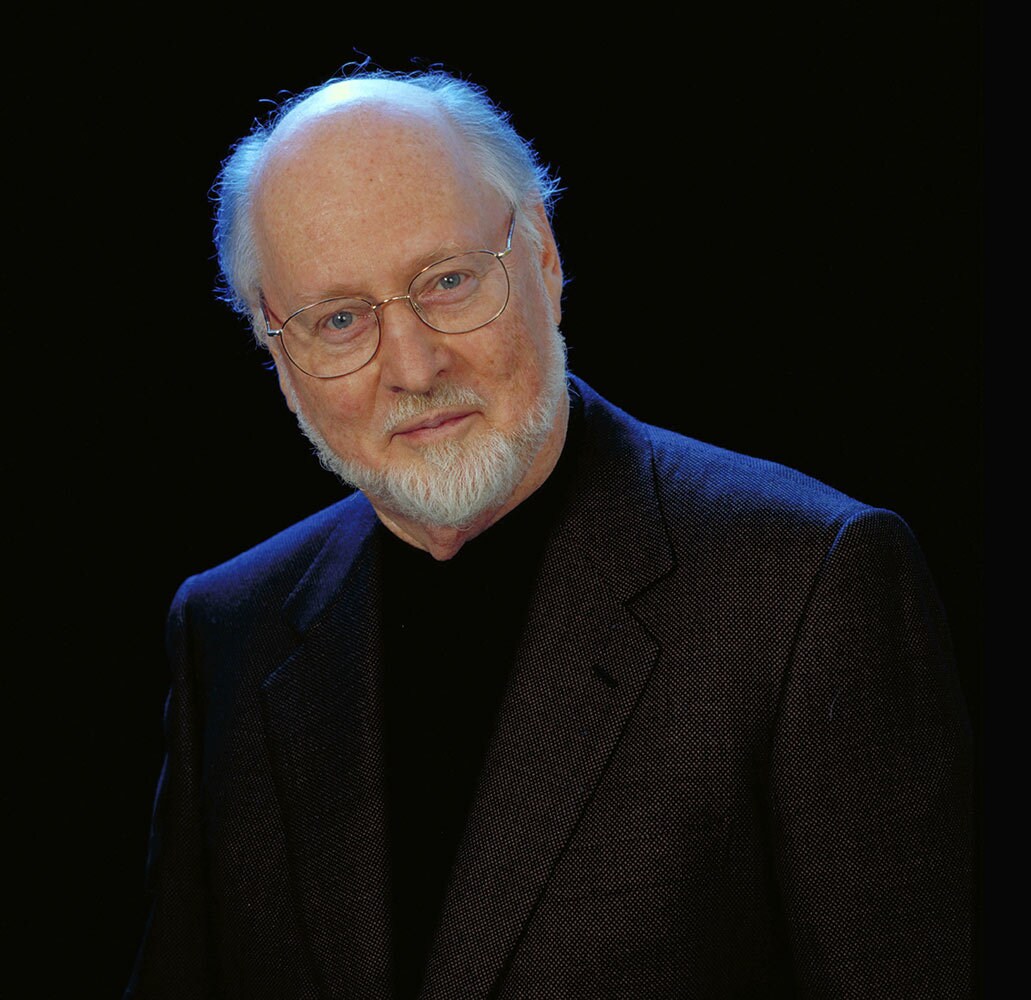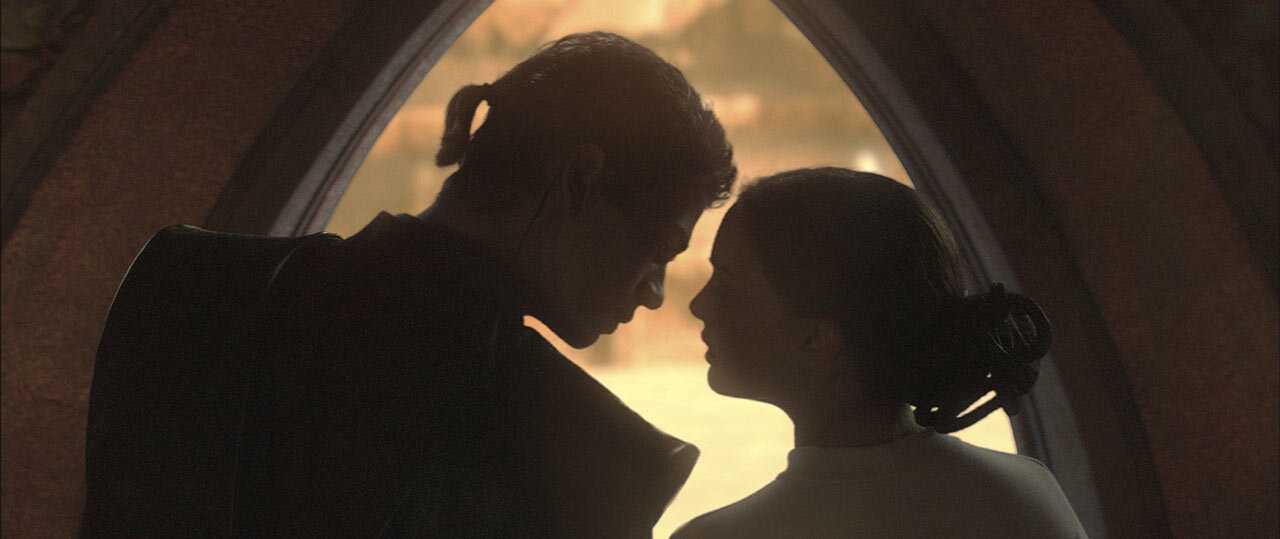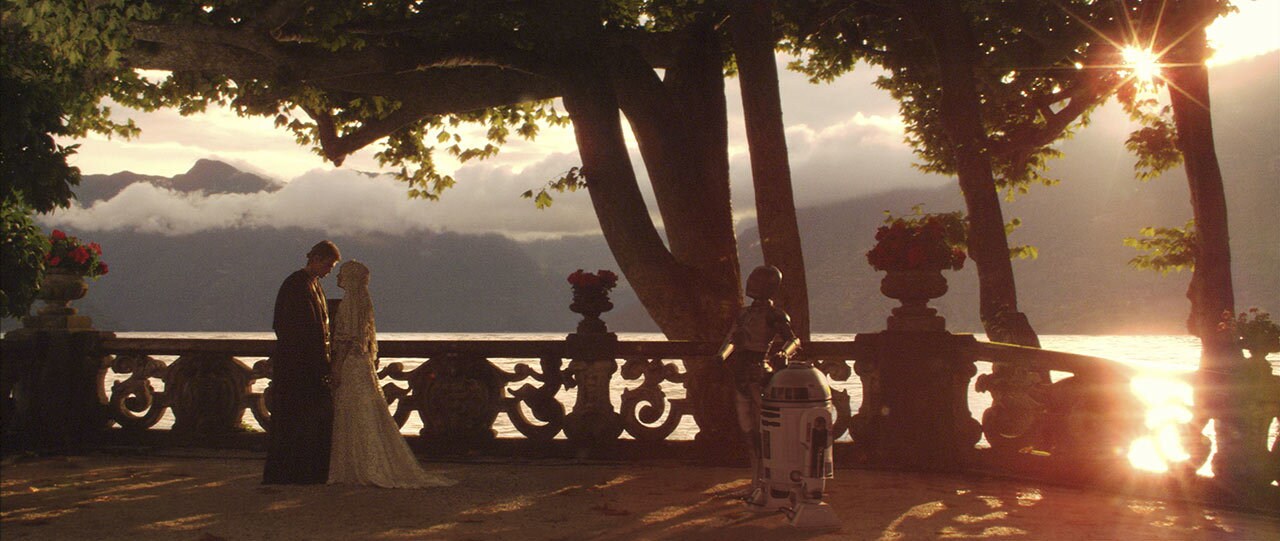Skywalker Sound's David Collins explores the music of Star Wars: Attack of the Clones, from themes to character connections.
 With Star Wars Celebration Anaheim 2022 off and running, Skywalker Sound’s David Collins examined the artistry of John Williams’ original score for Star Wars: Attack of the Clones, now enjoying its 20th anniversary. With a lifelong passion for music, Collins provided a learned and thoughtful ear to the nuance of Williams’ beloved scores, as he did previously for Star Wars: The Phantom Menace at Celebration Chicago in 2019. Here are four things we learned.
With Star Wars Celebration Anaheim 2022 off and running, Skywalker Sound’s David Collins examined the artistry of John Williams’ original score for Star Wars: Attack of the Clones, now enjoying its 20th anniversary. With a lifelong passion for music, Collins provided a learned and thoughtful ear to the nuance of Williams’ beloved scores, as he did previously for Star Wars: The Phantom Menace at Celebration Chicago in 2019. Here are four things we learned.
1. Music is a language we can all understand. From a new take on classic Hollywood romance to the return of familiar themes, there was a lot to unpack. As the host quipped, “I like to call this: David talks about ‘Across the Stars’ for an hour,” but he also explained how “music is a language,” one “that we all readily understand when it’s spoken to us.” Although most of us cannot “readily speak that language back,” Collins’ aim was to illuminate how Williams’ compositions engage with our emotions “so that you [can] enjoy Star Wars even more.”
One central element of the presentation was the distinction between major and minor modes in musical composition. The former conveys a lighter tone, perhaps aligned with the light side of the Force, while the latter minor mode strikes a deeper chord in line with the dark side.
Because Clones is a prequel, another important concept is what Williams himself termed “writing backwards,” where, as Collins elaborates, “he establishes themes and then he works in reverse to give us something earlier in the story.” In a Williams score, different themes reference each other.
2. A tragic love theme isn’t something new. For Collins, the clear stand-out of the Clones soundtrack is “Across the Stars,” the theme devised for Anakin Skywalker and Padmé Amidala as they fall into a forbidden romance. Director George Lucas had asked for what Williams once described in a documentary as “a love theme that was like the great love stories of the films of earlier times.” According to Collins, it’s one of the richest pieces in the entire saga, once that calls back to elements of the original trilogy.
“Across the Stars” effectively communicates the passionate albeit forbidden and ultimately doomed nature of Anakin and Padmé’s love, something audiences in 2002 could already understand. Collins noted that “a concept of forbidden love that was challenged if not completely devastated by circumstance…is not new to our western mythology.” One example is William Shakespeare’s Romeo and Juliet, a relationship that the bard himself described as “star-crossed lovers,” hinting at the source behind the name for Williams’ theme.
Collins also explained that “Across the Stars” was composed in a minor key, not akin to other familiar love themes in a major key with their “bold, beautiful, almost nostalgic themes.” Instead, the minor key “darkens everything.” Williams’ choice of oboe for the lead solo reflects Pyotr Illyich Tchaikovsky’s nineteenth century ballet, Swan Lake, itself used in a number of classic films like Dracula (1931).
3. Themes across Star Wars speak to each other. Perhaps the most lucid moment of Collins’ discussion concerned the synthesis between the core musical themes of Star Wars, each seemingly distinct but in truth intimately connected with the same musical building blocks. This is at the heart not only of “Across the Stars,” but also of the entire “Star Wars-ian” sound, a term Collins borrowed from Williams. With the shared elements of pitch implemented in rhythm over the course of a scene, separate themes appear almost the same.
The original theme for Princess Leia mirrors “Across Stars” with its two-note opening, only in a different key. Luke Skywalker’s theme (what today we know as the main title theme for Star Wars) sounds identical to “Across the Stars,” only distinct in pitch. “Leia is the pitch, Luke is the rhythm,” said Collins. The pattern is found all across the saga.
Additionally, the first three notes of “Across the Stars” is only a half-step away from a central figure in the beloved “Imperial March.” As Collins puts it, “Anakin is just a half-step away from becoming Darth Vader.”
Those same three notes among other figures heard in “Across the Stars” use a heavily-referenced musical phrase widely associated with death or foreboding. Known as “Dies irae,” or “the Day of Wrath,” its roots trace back centuries to Gregorian Chants and has been widely quoted in dozens of popular compositions, including for the movies. The message remains clear: this romance is doomed. “Dies irae” appears elsewhere in Star Wars too, such as when Luke witnesses the burning Lars Homestead in Star Wars: A New Hope.
4. Providing an “insight into genius.” In his final minutes, Collins briefly touched on other fascinating insights, from the experimental use of an electric guitar during the speeder chase (omitted from the film but included in the CD soundtrack) to the revival of the familiar “Duel of the Fates” as Anakin approaches his own fateful moment during the failing rescue of his mother.
For John Williams, the work of devising these complex themes might’ve come “almost instinctively,” according to Collins. With deference, the host explained that his own analysis simply provided “an insight into [Williams’] genius. When you take a look and you really start pulling at these pieces of music, this is the kind of stuff that you see. You start to see these patterns, and as a Star Wars fan, I really treasure that.”





